| Heather J. Matthews, PhD, is an assistant professor at Salisbury University. Her specialization is in children’s and young adult literature. She is specifically interested in diverse representation within children’s literature. Today's focus, on antisemitism as shown in current events as well as our everyday life, shows the power of YA literature as an antidote to hate. Thank you, Heather, for this post! |
The first story involves the Keller Independent School District, located in Keller, Texas. Keller ISD found itself the center of the conversation regarding book banning in recent days when the news broke that the district temporarily removed 41 books from its libraries while employees review the challenged books to determine appropriateness (Lopez, 2022). The list of books which were removed includes such titles as the graphic novel adaptation of Anne Frank’s The Diary of a Young Girl (1967), amongst others (Keller ISD, 2022). You may remember reading versions of this headline touting that Keller ISD had removed the Bible from its libraries’ shelves, but the list of 41 books under consideration include other titles like Mike Curato’s masterful Flamer (2020), George M. Johnson’s beautiful All Boys Aren’t Blue (2020), and Toni Morrison’s heartbreaking The Bluest Eye (1994). Upon examination, the challenged books had many commonalities: overwhelmingly, the list represents findings from PEN America’s 2022 report on banned books in America, which found that “a profound increase in both the number of books banned and the intense focus on books that relate to communities of color and LGBTQ+ subjects…” (2022). For me, the removal of the Anne Frank’s diary is startling and concerning for many reasons, but it isn’t surprising – the text is challenged often, and like recent removal of Maus (Spiegelman, 1990) from a Tennessee school curriculum, accusations often boil down to antisemitic accusations.
Perhaps you might remember watching a video this last winter of a snowplow directly seeking out two Jewish men on the side of the road, covering the men with snow and ice while the driver laughed (Reilly, 2022). Or, perhaps you saw recent Anti-Defamation League (or ADL) statistics which shows that antisemitic hate crimes rose in 2021 to an average of more than seven incidents per day across the United States (ADL, 2022). Or, perhaps like me, you saw more localized examples of antisemitism – threats causing synagogues to close, or antisemitic graffiti and vandalization in your community schools, centers of worship, libraries, universities, and sidewalks.
All that to say, antisemitism has been on my mind as of late. It has been on my mind for the last 30 years of my life, and stays on my mind on a daily basis. Don’t get me wrong, this is not an airing of grievances. This kvetching (Yiddish for “complaining”) is purposeful – frankly, much of antisemitism is difficult to identify, and difficult to remedy. It is my belief, however, that to battle antisemitism, we need to scrutinize the media we take in. If you’re reading this blog post, then I would wholeheartedly suggest your YA reading habits as a place to begin. So, begin we shall!
Before going any further, I would like to define a term, as many good scholars do. Throughout this post, you’ll see the word “antisemitism” styled as such. This is based on the recommendations of the ADL, who recommend the spelling “antisemitism” instead of “anti-Semitism.” This change highlights two distinct differences: a removal of a hyphen, and a lack of capitalization (ADL, n.d.). This change is also reflected in the Associated Press, which announced in 2021 that they too would embrace a lack of hyphenation or capitalization (Bandler, 2021). These changes are to reflect that using a hyphenated term (anti-semitism) implies that the term “semite” or “semitic” is in reference to a group of people, when in fact, “There is no such thing as a Semitic peoplehood” (ADL, n.d.).
The very first step any reader can take in pushing back against antisemitism is to diversify your reading habits to include more Jewish representation. Like any other demographic group, specifically seeking out Jewish characters in YA lit is not necessarily a difficult task to undertake. There are entire blogs and Facebook groups dedicated to discussing, reviewing, and upholding Jewish representation in youth literature. Goodreads has several lists of Jewish YA books, as does the Association of Jewish Libraries and the Jewish Book Council. PJ Our Way publishes and disseminates Jewish YA lit each month to eager readers, and the American Library of Association awards the Sydney Taylor book award and manuscript award each year to exemplary Jewish literature. All of these places and more showcase and uphold Jewish representation in YA literature, and are fine places to start one’s journey if you wish to assess the quantitative elements of your reading habits or book collections.
However, I would urge you to look beyond simply counting the Jews on the pages, and look at the quality of the Jewish representation. Specifically, I urge you to look for antisemitic representation within the YA you consume. When considering antisemitic representations of Jews in literature, there are a few main stereotypes and tropes, as identified by the Jewish Book Council (Baum, 2017), but this list certainly is not an exhaustive one. For example, the goblins within the world of Harry Potter (Rowling, 1998) are a fairly obvious example of antisemitic Jewish representation – long nosed, greedy creatures, solely interested in matters of money and banking seems a little on the nose (if you’ll pardon the pun).
How can we combat this? One solution is to seek out books which name and fight against antisemitism. I find myself craving texts like The Assignment (Wiemer, 2020), which shows young people that they can directly fight against antisemitism, even if they aren’t Jews, and even if it is scary or unpopular to do so. Texts like Some Kind of Hate (Littman, 2022) (which I read recently for the Sydney Taylor Shmooze, a predictive blog which examines children’s and young adult novels with Jewish elements to speculate on the year’s Sydney Taylor book award winners), which explores internet radicalization and antisemitic domestic terrorism.
| At the same time, I find myself desperate for books like They’ll Never Catch Us (Goodman, 2021)– books which feature Jewish characters who are unlikeable, but not for antisemitic reasons. Novels like Color Me In (Díaz, 2019), which highlights intersectional Judaism, or Cry of the Giraffe (Oron, 2010), which highlights Jewish struggles across the world. Of course, there are too many books to name which portray positive Jewish experiences, and for those I am thankful as a scholar and as a reader, but books which highlight the multiplicitous iterations and facets of Judaism in all of their difficulties – these are the books which I believe are most valuable in the fight against antisemitism. |
| To loosely paraphrase from Birnbaum’s Ethics of the Fathers, it is no one person’s job to finish the fight against evil, nor are we allowed to neglect it (1949). The fight against antisemitism is literally centuries old, and yet is a constant threat against Jewish people every day. To engage in the fight against antisemitism is not the sole duty of one person, and it is not reasonable to expect that one person alone can win – however, it is each person’s job to engage in the struggle against antisemitism. Our bookshelves and our reading habits are just one small way to take on antisemitism. |
The Associated Press. (2022). Judges panel dismissed lawsuit filed by Jewish couple alleging adoption bias. Knox News. https://www.knoxnews.com/story/news/local/2022/07/05/tennessee-judges-dismiss-adoption-lawsuit-filed-jewish-couple/7813787001/
Anti-Defamation League [ADL]. (n.d.). Spelling. https://www.adl.org/spelling
Anti-Defamation League [ADL]. (2022). ADL audit finds antisemitic incidents in United States reached all-time high in 2021. https://www.adl.org/resources/press-release/adl-audit-finds-antisemitic-incidents-united-states-reached-all-time-high
Bandler, A. (2021). AP changes spelling of “anti-Semitism” to “antisemitism.” Jewish Journal, https://jewishjournal.com/news/336003/ap-changes-spelling-of-anti-semitism-to-antisemitism/
Baum, D. (2017). The 12 most stereotypical jews in literature. Jewish Book Council. https://www.jewishbookcouncil.org/pb-daily/the-12-most-stereotypical-jews-in-literature
Birnbaum, P. (1949). Ethics of the fathers. Hebrew Publishing Co.
Curato, M. (2020). Flamer. Henry Holt and Co.
Ebert, J. (2020). Tennessee Gov. Bill Lee signs controversial adoption bill, which takes effect immediately. Knox News. https://www.knoxnews.com/story/news/politics/2020/01/24/tennessee-adoption-bill-gov-bill-lee-signs-controversial-law/4567731002/
Díaz, N. (2019). Color me in. Delacorte Press.
Frank, A. (1967). The diary of a young girl. Doubleday.
Goodman, J. (2021). They’ll never catch us. Razorbill.
Johnson, G. M. (2020). All boys aren’t blue: A memoir-manifesto. Farrar, Straus and Giroux.
Keller Independent School District [Keller ISD] (2022). Current book challenges. https://www.kellerisd.net/Page/7364
Littman, S. D. (2022). Some kind of hate. Scholastic.
Lopez, B. (2022). Keller school officials order 41 books – including the Bible and an Anne Frank adaptation – off of library shelves. The Texas Tribune. https://www.texastribune.org/2022/08/16/keller-isd-removes-books/
Morrison, T. (1994). The bluest eye. Plume.
Oron, J. (2010). Cry of the giraffe. Annick Press.
PEN America. (2022). Banned in the USA: Rising school book bans threaten free expression and students’ first amendment rights. https://pen.org/banned-in-the-usa/
Reilly, P. (2022). NJ man fired after video shows two men plowing snow onto Orthodox Jewish men. New York Post. https://nypost.com/2022/02/06/new-jersey-man-donny-klarmann-fired-after-video-shows-two-men-plowing-snow-onto-orthodox-jewish-men/
Rowling, J. K. (1998). Harry Potter and the sorcerer’s stone. Scholastic.
Santana, S. (2022). San Antonio’s Temple Beth-El cancels services as FBI investigates potential threat. My San Antonio. https://www.mysanantonio.com/news/local/article/San-Antonio-synagogue-temple-bethel-17294598.php
Spiegelman, A. (1990). Maus: A survivor’s tale. Pantheon Books.
Whetstone, T. (2022). Tennessee-based adoption agency refuses to help couple because they’re Jewish. Knox News. https://www.knoxnews.com/story/news/politics/2022/01/20/holston-united-methodist-home-for-children-adoption-tennessee-refused-family-jewish/6582864001/
Wiemer, L. (2020). The assignment. Ember.
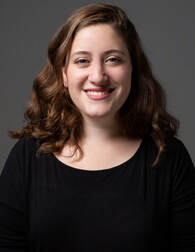
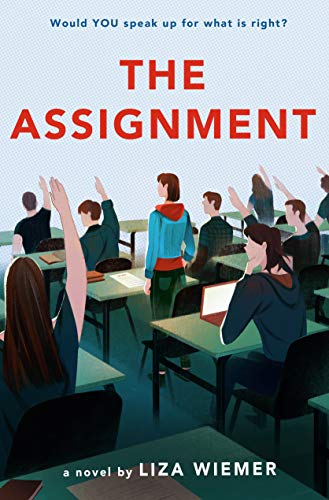
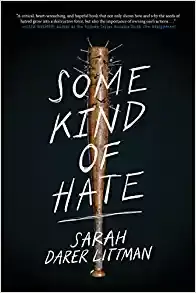
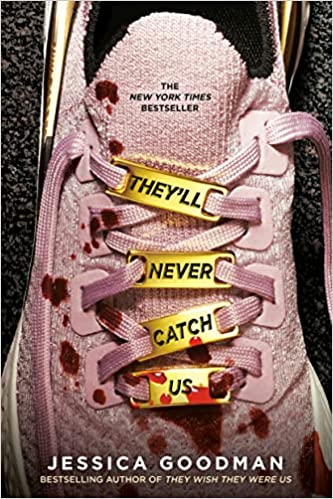
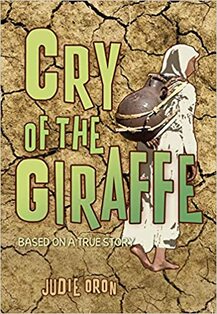
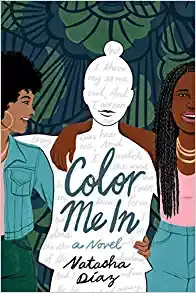

 RSS Feed
RSS Feed